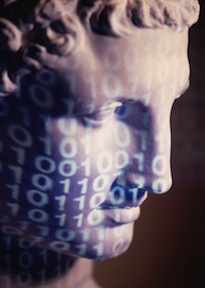The assignment for this week is to examine a few ways the internet has made collecting and preserving information easier in the digital age. The importance of preserving the past digitally is emphasized in Chapter 7 of Cohen and Rosenzweig's Digital History, as the case study of the September 11th attacks on the United states demonstrates. The online community reacted to the event on blogs and discussion boards across the web. The sheer weight of the event and individual reactions to it prompted historians to preserve these responses for future researchers. It has not often been the case in human history that we could record the personal reactions of people to a devastating historical event like 9/11. The 9/11 case study demonstrates the importance of digital preservation. What are the other ways that the internet is used for this task?
Digital archives are quickly becoming the standard of historical preservation. All over the web digital collections are presenting their work for free to anyone to observe. The Library of Congress has digitized an enormous volume of information and presented it online for public access. While browsing the site, one can study collections of old photographs, sound bytes, maps, and newspaper articles. With a LOC account, you can easily store and manage your favorite pieces of the collection. In this way, the LOC has made public access to governmental records not only possible, but easy.
The popular website Flickr takes public access one step further by allowing free flowing user commentary and tagging to its collections. LOC and Flickr have even teamed up to present a few of the LOC's photographic collections through Flickr's commons, thus unleashing the sometimes relentless remarks of the users. The subject here is crowd sourcing. This means that anyone browsing through the photo's on Flickr at any time can respond to the photo's through comments and tagging features.
Is crowd sourcing a good thing? I would have to say yes, it is a useful tact to attract attention to the collection and encourage user feedback. When promoting a site or an online project it can be the historians best friend. It is much easier to receive advice, insights, and criticisms when the content is free for public observation. However, as with all the tools of the digital world, the crowd sourcing of Flickr commons is not without some criticism. The spellbound blog voices concerns about the problems of crowd sourcing. One of the problems is the unrefined comments posted by some of the users. Some photographs are plagued with nonsensical commentary which is often times irrelevant to the subject.


Luke, I don't know about you, but as I was reading the commentary from Spellbound and Cebula about the annoying comments left by flickr users, I couldn't help but be reminded of Virginia Shea's "Core Rules of Netiquette" that we read the first week. Personally I love the potential crowd-sourcing has to offer, but not everyone operates under rules of Netiquette and sometimes the commentary detracts from the power of the image. But you are right in pointing out all of the other ways crowd-sourcing benefits historians. Thank you for the perspective.
ReplyDelete